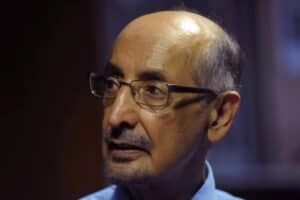Nin said in the aftermath of the Burundi genocide, Madikizela-Mandela instilled hope in her and many other Burundians.

State notices and press releases from the ruling ANC on the dignitaries and distinguished persons that will attend the late Winnie Madikizela-Mandela tomorrow focused mainly on politicians, statesmen and ambassadors.
Understandably so, they could not have anticipated that Burundi’s best-known musical icon, Khadja Nin, would quietly jet into the country to pay her last respects to the woman she said asked her never to give up hope.
Nin burst onto the international music scene with a 1994 critically acclaimed album, Ya Pili, with her major breakthrough occurring in 1996 with a hugely popular album called Sambolera, sung in Swahili and Kirundi.
Speaking to the SABC this morning, Nin said she could not have lived with herself had she missed out on the opportunity to bid her final goodbye to a woman who lifted her spirit during a difficult period in Burundi history.
The 1993 mass killings of Tutsis by the majority Hutu populace was described as a genocide in the final report of the International Commission of Inquiry for Burundi presented to the United Nations Security Council in 1996.
RELATED: Thandi Modise’s two most difficult weekends as Winnie’s deputy
Nin said almost immediately afterwards, she had an opportunity to discuss the tragedy with the late anti-apartheid struggle icon, and all she felt oozing from Madikizela-Mandela was empathy, courage and the strong will to fight.
“She looked at me and said, young lady, you must never ever give up hope. You must fight. She lost so much and paid for the struggle with her life, but she never gave up. That is the message she gave me,” Nin said this morning.
In a documentary produced by one of her grandchildren, Zankosi Manaway, and based on historical letters documenting the pain and suffering she endured during 491 days in solitary confinement, Madikizela-Mandela explained how she fought apartheid torture.
“My body reached pain threshold. They turned the bucket upside down and put the food on top of it and kicked it into my cell. They couldn’t bear to serve me because that would lower their dignity. I will pass out, and when they poured water on me, I felt refreshed and wanted to fight. I didn’t care if they wanted to kill me,” Madikizela-Mandela could be heard saying in the documentary.
The funeral of the late ‘First Lady in Exile’, who was the first anti-apartheid activist to be banished to internal “exile” in a derelict town of Brandfort in the Free State, an experience she described as depression on earth, will be held tomorrow at Orlando Stadium with a select few expected to attend a private burial ceremony in Fourways, north of Johannesburg.
‘Mrs Mandela’ wanted to go to Moria for Easter, says former PA Zodwa Zwane






